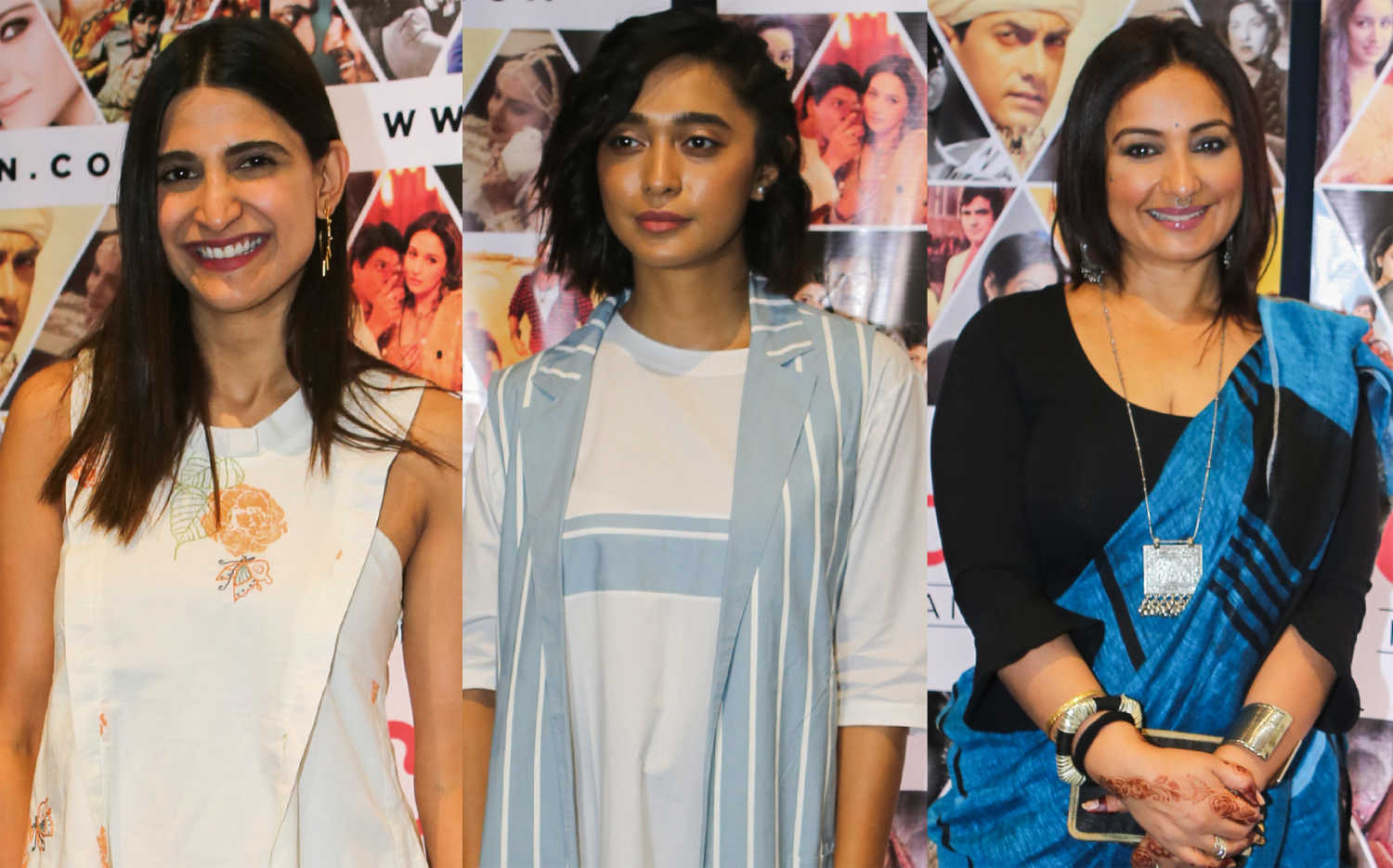The actresses were attending the Oxfam ‘Women In Film’ brunch held at JW Marriott, Mumbai, on 28 October 2018.
Aahana Kumra, Sayani Gupta, Divya Dutta on #MeToo: We should sustain the movement
Mumbai - 01 Nov 2018 14:00 IST
Updated : 02 Nov 2018 10:54 IST


Sonal Pandya
Apart from showcasing great world and Indian cinema titles, this year’s MAMI Mumbai Film Festival has also been turning the spotlight to a much-needed conversation – the representation and treatment of women in Indian cinema. Several conversations were held at the festival on the topic with actress Renuka Shahane and filmmakers like Anjali Menon speaking up about the issue of a safe workplace for women in the Indian industry.
At Oxfam ‘Women In Film’ brunch, held to celebrate the organisation’s Best Film on Gender Equality award on 28 October, actresses like Divya Dutta, Aahana Kumra, and Sayani Gupta spoke with us separately about the ongoing #MeToo movement.
Fanney Khan (2018) actress Dutta said that the work atmosphere needed to be much healthier.
“A lot of women don’t speak. Finally, we’ve found a voice being heard and supported, more than [just] heard being supported. Jab support aata hai toh strength aati hain, aur aurate saab saath mein [When support is there, then strength comes, and all women are together],” she said.
However, she cautioned, “The only thing is we have to really make it strong and not dilute it by any kind of inane things that just come by which might just be frivolous. You have to be careful and responsible. You have to be heard. This will be a process and it will take time.”
Film audiences have graduated: Divya Dutta, Omung Kumar at Oxfam ‘Women In Film’ brunch
Actress Aahana Kumra’s film, Lipstick Under My Burkha (2017), directed by Konkona Sensharma, had won the Oxfam Best Film on Gender Equality award in its first edition.
“I’m so glad this conversation is happening because it’s a much required conversation and people have taken it too lightly all these years and I think it’s time they push the envelope and move forward,” Kumra said of the award.
“I’m glad that there’s a conversation around the #MeToo movement also because it’s important that the producers and directors and casting agents get scared when they approach actresses,” she added. “They should be worried that we should not behave inappropriately. Because one does it, [the] second does it, so then everybody is available to do these kinds of things. Trying to bracket people is not a good idea,” Kumra added.
She also hoped that people should not be worried about censoring themselves while speaking for fear of not getting work. Kumra was tired of seeing women represented on screen in domestic roles and as mothers and sisters.
Gender sensitivity highlight of brunch for Oxfam Best Film on Gender Equality Award
“There’s so much more to women. Don’t women work? Women don’t go to offices, they don’t work late, they don’t work as journalists, they’re not doctors, they’re not saving lives, why the hell are they only trying to bracket women for certain sexual beings,” she asked.
Another actress who echoed Kumra’s thoughts was Sayani Gupta who said the male gaze in Indian cinema was problematic.
“Unfortunately, it’s so deep-rooted and so deep-seated in misogyny and patriarchy and the gaze is very problematic, especially in Indian cinema. I hope it changes. It is changing slightly but we’ll have to sort of make a lot of effort unitedly, [as] filmmakers, actors, producers, and financiers, so that we are not talking about these things five years down the line,” she commented.
The Margarita With A Straw (2015) actress felt the conversation was changing already these days and that it was important to start a dialogue about stereotypes that we shouldn’t be having in the 21st century.
“Honestly, I feel very grateful to people like Tanushree [Dutta] and all, who have come out, who are coming out, they’ve shown such great courage. It just took one person to start, it always takes one person to start a wave, a movement. And that’s happening. It was that difficult but it’s also that easy, in a way, and I wonder why it took us so long but now that it’s here, we should sustain the movement and everything around the it,” she said.
“It’s not just about a safe workplace, it’s also about how women are viewed upon, how women are seen, and it is so difficult to think of women in society beyond the sexuality which is so sad. But the good thing is that I think next year when we talk again and meet at the Oxfam lunch at MAMI, I’m sure things would have moved a lot,” Gupta offered.
Related topics
MAMI Oxfam Gender Equality Award Sexual harassment



